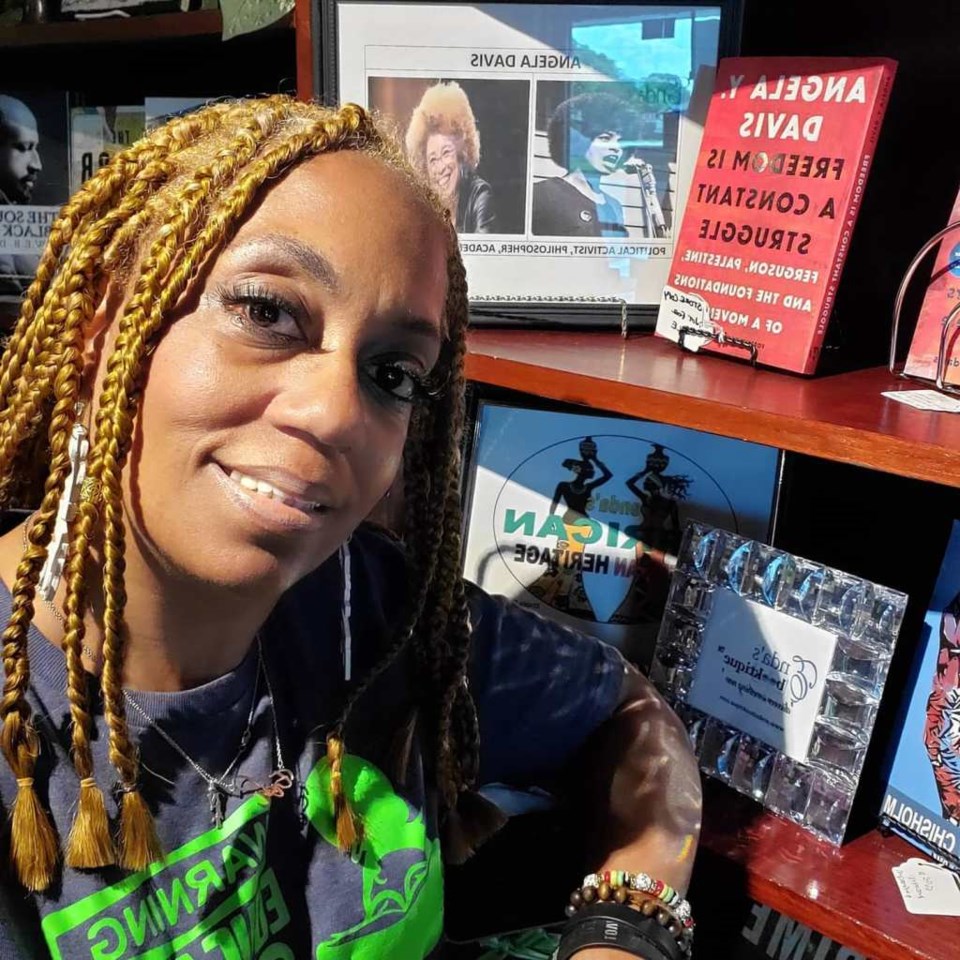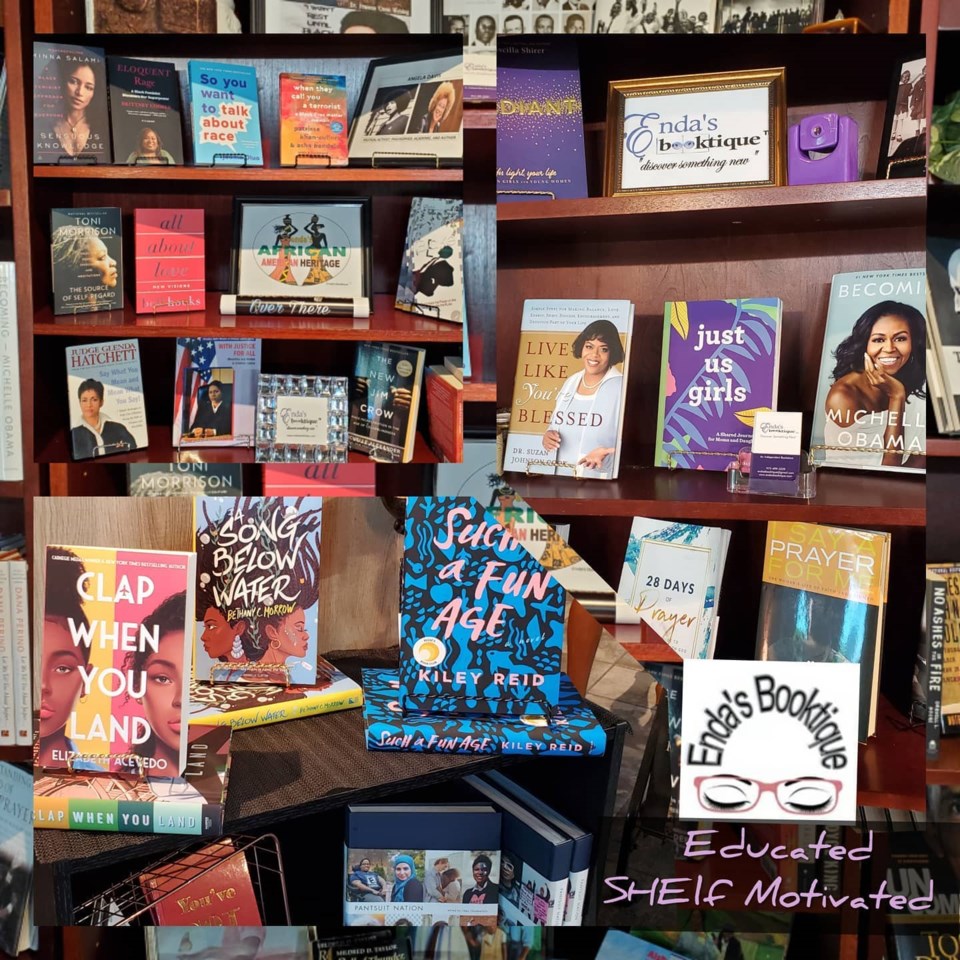As a teenager, E. Jean Pemberton Jones attended a Dallas public school with a primarily Black student population. Though she remembers having access to literature written by Black authors — such as Langston Hughes, W.E.B. Du Bois, Dr. Martin Luther King Jr., and Lorraine Hansberry — her textbooks were another story. Looking back now, she says, her school textbooks were not inclusive of Black history at all.
For example, they didn’t include the Great Migration of African Americans after the Reconstruction Era. They also left out the contributions of significant Black women in STEM, such as Alice Ball, an African American chemist who found a cure for leprosy, and NASA engineers Katherine Johnson, Dorothy Vaughan, and Mary Jackson, whose contributions to the field helped launch John Glenn into space.
“A lot of the things I learned, I learned as an adult learner and not as a teenager,” Jones says.
Today, Jones is an African American educator and owner of the bookstore Enda’s Booktique in Duncanville. Currently, bookshops like hers are becoming critical resources for many Americans who are self-educating by consuming anti-racist literature. In the book How To Be an Antiracist, author Ibram X. Kendi defines an “antiracist” as someone who supports policies and ideas that contribute to racial equity. Black activists have highlighted the important difference between “not being racist” and being antiracist, actively participating in ending racism and racist systems.
According to The New York Times, shortly after restocking, many bookstores are selling out of anti-racist reads such as Robin Diangelo’s White Fragility, James Baldwin’s The Fire Next Time and Michelle Alexander’s The New Jim Crow. In some instances, publishers have doubled production rates in order to account for increased demand.
The increased consumption of Black literature is a much-needed cause for celebration. However, many Americans are purchasing these books from large retailers like Amazon and Barnes and Noble. Jones hopes that readers see it as an opportunity to seek out local Black-owned bookstores to support, and people like her who have made it their life’s work to curate this kind of literature.
“It’s always important to support African American owned businesses. I don’t want to say it’s especially right now. It’s especially all the time,” Jones says.
Black Biz DFW, a directory of local Black-owned businesses, points out that DFW’s Black population in 2014 was 15 percent. However, in the same year, DFW Black-owned businesses with paid employees only totaled 3 percent.
And those businesses have been disproportionately affected by COVID-19, according to The Washington Post. The number of working Black-owned business owners in the US has dropped 40 percent since before the pandemic.
Jones booktique started as a GED prep program for adult learners pursuing their high school diplomas. To serve them, she curated a reading room to promote literacy, which then grew into a library. Earlier this year, it became large enough for Jones to open it up to the public as a bookshop.
Jones’ background as an educator heavily influences the book selection at Enda’s Booktique. One of her main goals is to empower readers through literacy and provide them with exposure to information that they may not come across in the public school system.
Even as an adult learner, Jones finds that there are obstacles to accessing diverse literature. She is currently pursuing her doctorate at SMU, where she is often assigned readings that leave out women’s perspectives. In response, she decided to stock a variety of literature written by women of all races at Enda’s.
“I believe it’s important to have a platform for women who write about all genres, whether it’s romance or STEM, from an academic perspective or from a psychological perspective,” Jones says.
The current upsurge of the Black Lives Matter movement may have been the wake-up call for individuals to seek out Black-owned businesses, but Jones says that it’s important to continue to support them in the long-term. Part of the inequity for Black-owned businesses, she says, is the tendency for the larger populace to support them as a fad and not as a lifestyle.
She also emphasizes that reading books on diversity is just a small step toward change.
It is also going to take building authentic inclusive relationships across communities, she says, putting in place layers of policies and practices of antiracism within corporate organization and removing implicit bias, racist structures, and discriminatory practices within educational and government agencies and systems.
“When we only support what we know of, it limits our capacity to be able to understand other people’s plights. We lack compassion,” Jones says.

E. Jean's book recommendations
For the general populace:
- So You Want to Talk About Race, Ijeoma Oluwo
- Our Time is Now, Stacey Abrams
- Unbought and Unbossed, Shirley Chisholm
- The Souls of Black Folk, W.E.B. Dubois
- The Color of Law, Richard Rothstein
For educators:
- Why Are All the Black Kids Sitting Together in the Cafeteria, Beverly Daniel Tatum
- Letting Go of Literary Whiteness, Carlin Borsheim-Black and Sophia Tatiana Sarigianides
- Multiplication is for White People: Raising Expectations for Other People’s Children, Lisa Delpit
Enda’s Booktique is located at 428 N. Main St., Duncanville. You can also reach them at 972.460.6362 or endasbooktique.com.
Here are some more local Black-owned bookstores to support:
The Dock Bookshop
The Dock Bookshop opened in 2008, and according to their website is “now one of the largest independent, full-service African American owned bookstores in Texas and the Southwest.” They sell books from a range of genres as well as apparel, health and beauty products, DVDs, greeting cards and more.
This bookstore also hosts events such as author talks, poetry and spoken word, film screenings, and children’s story-time. They regularly support the Texas Literacy Connection, a 501(c)(3) nonprofit and host “Dock Radio”, a talk radio that can be accessed on their website or on the Dock Radio app, available for iPhone or Android.
6637 Meadowbrook Dr., Fort Worth | 817.457.5700 | thedockbookshop.com
Pan African Connection
Pan African Connection describes themselves as “the shortest trip to Africa without getting on a plane”. In addition to offering a wide selection of Black literature, they also sell art, clothing, books, clothes, natural hair products and more. This bookstore hosts a variety of events for the promotion of the comprehensive wellbeing of the African diaspora community.
The store was opened in 1989 by current CEO Akwete Tyehimba’s husband, Bandele Tyehimba. After Bandele’s passing in 2012, Akwete took over the shop with the help of her daughter, Adjwoa. Today the shop continues on their mission “to remind the world that Black history did not start in slavery, but in Africa.”
4466 S. Marsalis Ave., Dallas | 214.943.8262 | panafricanconnection.com




